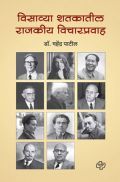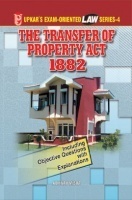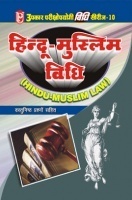The fifth edition of International Relations covers the subject from the historical perspective—from the eve of the First World War to the end of the Cold War and beyond. This book is divided into two sections—the first deals with the theoretical perspectives, while the second provides an historical overview of events. These include the two World Wars, problems faced in peace-making, system of alliances, search for security, Nazism and Fascism, rise of communism, the arms race and disarmament, the Cold War and its end, Non-Aligned Movement, and the emergence of regional organizations. The book is a useful resource for teachers and students of history and political science, those appearing for civil services examinations, as well as those interested in international relations.
This book Useful for history and political science students.
1. Thoroughly revised and updated to cover the latest developments
2. Enlarged to cover theoretical aspects— realism, neo-realism, liberalism and neo-liberalism, dependency, and feminist approaches
3. Covers recent historical developments such as the Gulf War and the new international economic order
1. Section I: Theoretical Perspectives - Introduction to International Relations
2. Realism
3. Neo-realism
4. Liberalism and Neo-liberalism
5. World System and Dependency
6. Feminist approaches, Section II: Historical Overview - The World in 1914
7. The Peace of Paris
8. The League of Nations: Structure and Functions
9. The Search for Security
10. Reparation Debits and Economics Crisis
11. The Russian Revolution
12. Fascism in Italy
13. The Far East
14. Rise of Nazi Germany: The Third Reich
15. Nazi Dictatorship in Action
16. Appeasement and Prelude of the War
17. The Second World War
18. The League of Nations—A Peace-maker
19. War-Time Conferences
20. Foreign Policy of the United States of America
21. Foreign Policy of the Soviet Union
22. The Cold War
23. Communism in China and the War in Korea
24. Decolonization: Emergence of the Third World
25. Evolution of the Cold War
26. Detente and the End of Cold War
27. Non-Alignment
28. The United Nations
29. Regional Organizations: Emerging Centres of Power


















